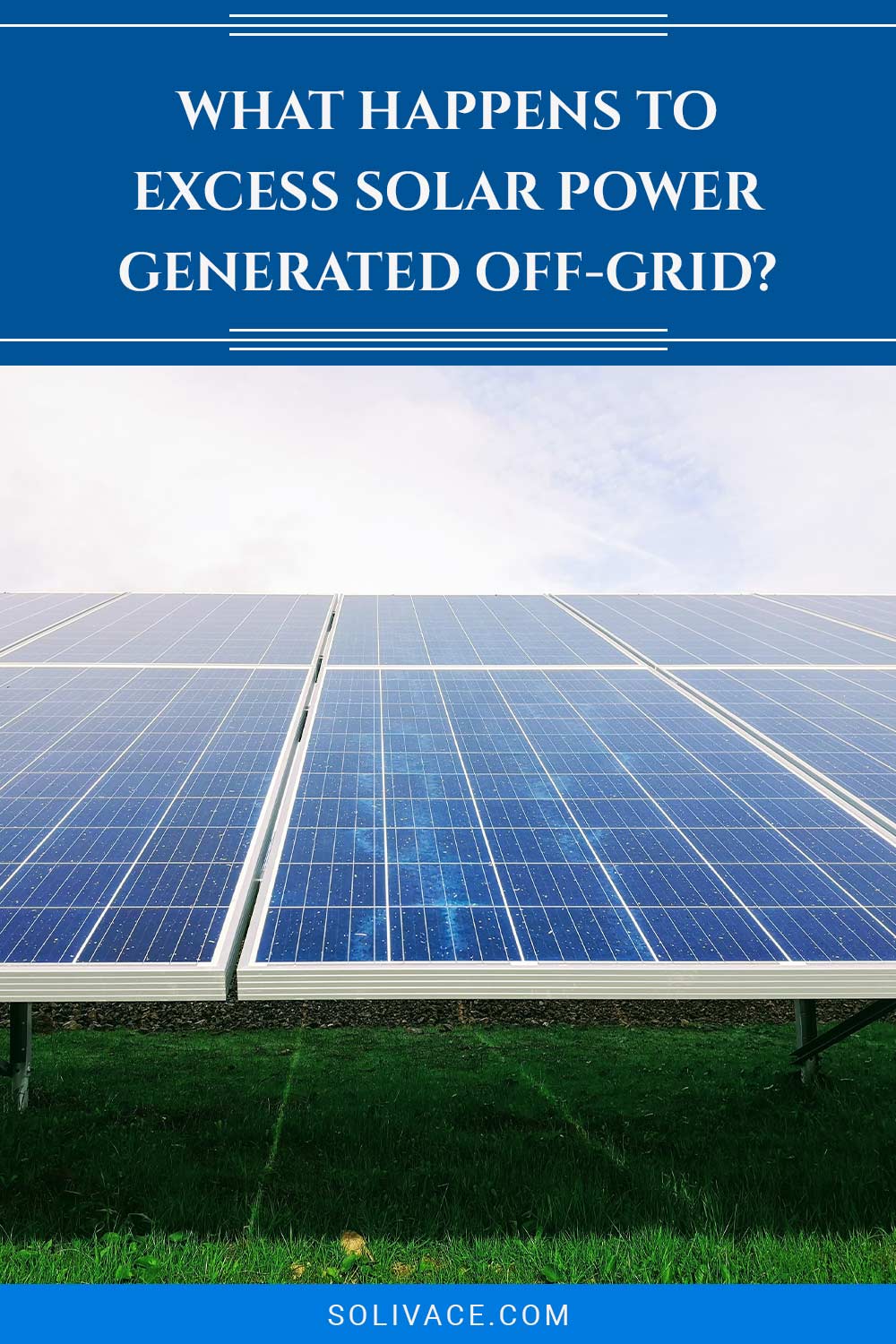What Happens To Excess Solar Power Generated Off-Grid?
We may earn commissions for purchases made through links on our site. Learn more on our about us page.
The first place the power will go is to the storage batteries; once the solar power being generated produces the electricity used by the home, the excess will be stored. After the batteries are full, off-grid systems should have a shut-off switch with monitoring software.
If not, meaning there is no regulatory safety mechanism, the batteries could be at risk of being overcharged and becoming damaged permanently.
If you are reaching this point with your system, consider adding additional batteries or using more power for other utilities around the homestead.

How Does it Happen?
The first condition that must occur will be the balance of generation to usage leans towards energy production. This will lead to the batteries fully charging after the excess current is diverted to storage facilities.
The damage happens when the batteries continue to receive current from the solar panels and controller hardware, which lacks electric protection against this, to which overcharging is likely to occur.
Damaging the batteries and requiring the entire system to shut down for repair, along with hardware and software updates. Again, damage can be easily avoided with suitable systems to prevent overcharging.
Is this Common?
Opposed to the on-grid Solar panel power generating systems, which will send excess power generated to the city power stations, the off-grid systems will experience this issue.
However, most rural off-grid power generation stations will have enough batteries to balance the usage and generation ratios or the right equipment to shut off flow when charging is complete.
In the rare occurrence in which solar panel electricity production is equal to the daily usage needs of the family using the power, batteries will act more like a safety precaution than a storage source. To answer the question, yes, generating extra power is quite common.
Where Does the Excess Power go?
As mentioned earlier in the article, there will be different ways for people to deal with the extra power being generated.
For example, some of the mountain and other rural communities will connect their power ‘grids’ together and share power amongst their small village of homes.
Excess power will then be sent off to the neighbors requiring more electricity than they can produce.
Single home setups will have batteries for the excess power and the right equipment to perform a safety shut-off, preventing overcharging and damage to the storage facilities.
Can Excess Power Create Damage?
Making a serious note of this would be wise because when excess power is fed into the batteries without shutting off when they are complete, it will damage the units. This is because the batteries, systems, hardware, and other equipment are hooked to the network.
There is also the risk of fire, which, as many are privy to, is the home’s adversary. The best policy is to have an expert installer help with the solar panel station and for their crew to put those systems in place before leaving the job site.
What Should You Do If It Keeps Happening?
First, a person should shut down the solar panel system and call the installer or solar professional. There is a system failure somewhere along the circuit, and it will need repair or replacement.
New hardware and equipment will likely be installed in the system to monitor and regulate the power flow when the batteries are full. Consider adding another building to the grid or purchasing additional batteries to minimize wasted power.
Multiple steps can be taken to make this work for you; the best step will be to consult an expert and have one examine your system.
Final Thoughts on What happens to Excess Solar Power generated Off-grid
Ensuring your solar power generation systems are safe is essential to preventing damage to the batteries or the grid itself. Overcharging is common, so on-grid homes have inverters that will send the excess to the larger grid for the neighbors to use.
When you are having your solar panels installed, be sure to have the conversation about overcharging protection.
Have the installation crew put in safety software and monitoring hardware, along with safety shut-off equipment and programs to protect your home and power generation system.



Leave a Reply
You must be logged in to post a comment.